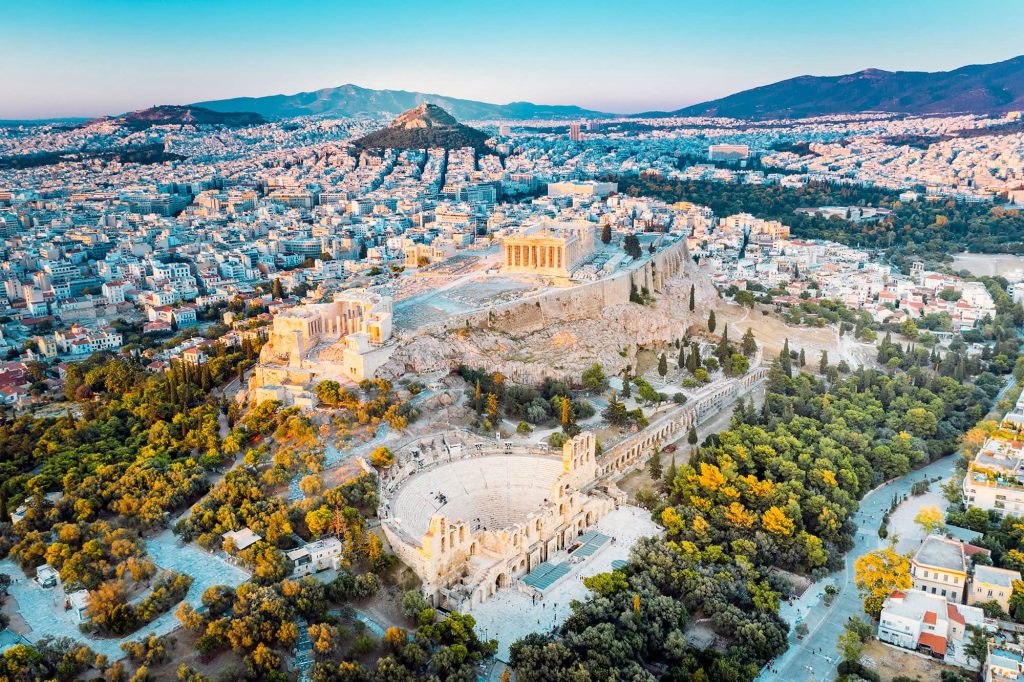Athens is the historical capital of Europe, the birthplace of democracy, arts, science and philosophy of western civilization. Home of Plato, Socrates, Pericles, Euripides, Sophocles, Aeschylus.
More details

Athens is one of the world’s oldest cities. It’s recorded history spanning around 3.400 years and it is being inhabited since the 11th millennium B.C. E. Today, under the shadow of Parthenon, the contemporary urban scenery of the sprawling city reflects its exciting history, its multi- cultural modern personality as well as the infrastructure and facilities.
The perfect Mediterranean climate with the legendary Greek sunlight, the unique combination of glorious history with modern, urban innovation, the coexistence of great culture with astonishing natural beauty, the high standard hotel accommodation, modern means of transportation such as the cutting edge modern metro, the vibrant rhythm of life, the wide choice of opportunities for shopping, dining and night life and of course the warmth of the Athenians people feature Athens as the ideal all year round city break destination. The city of Parthenon is an open-air museum. A large part of the town’s historic center has been converted into a 3 km pedestrian zone, one of the largest in Europe. It leads to the major archaeological sites (“archaeological park”), reconstructing – to a large degree – the ancient landscape. Either on foot or by bike, the ‘’Grande Promenade’’ around Acropolis is an unforgettable journey through history.
Athens, with its tall buildings and contemporary shops, is the first European city when approached from the Middle East. When approached from the west, from elsewhere in Europe, what strikes the visitor is the influence of the East—in the food, music, and clamorous street life—perhaps vestiges of a time when Athens was divorced from European society under the yoke of Ottoman rule. Nevertheless, it is wrong to say that Athens is a mixture of East and West: it is Greek and, more particularly, Athenian. The city, after all, nurtured Western civilization thousand of years ago. Athens remains on the world stage to this day.
The first traces of Athens date from the Mycenaean period, while it reached its peak after at the 5th century BC, known as the Golden Century of Pericles, the Athenian statesman who has inspired so many innovations for his homeland and led it to its glory. From as early as the 8th century BC, Athens was gradually developing into an important city-state for Greece, giving emphasis on culture and its naval power. But it was in the 5th century BC when great political formations were made, new buildings were constructed, including the Acropolis, the Temple of Poseidon at Sounion and the Ancient Agora, and victorious imperials wars took place so that Athens would obtain new economical sources.
Notably, in 2004 the world came to the city for the Olympic Games, which spurred a dramatic makeover for Athens. In addition to building a raft of new sports venues and facilities (including a stadium designed by Santiago Calatrava), Athens undertook massive transportation infrastructure improvements that included dramatic expansion of public transportation and the construction of a new international airport.
